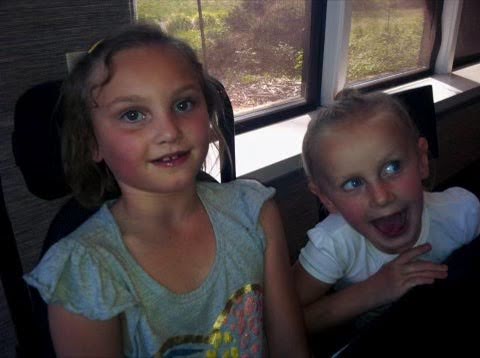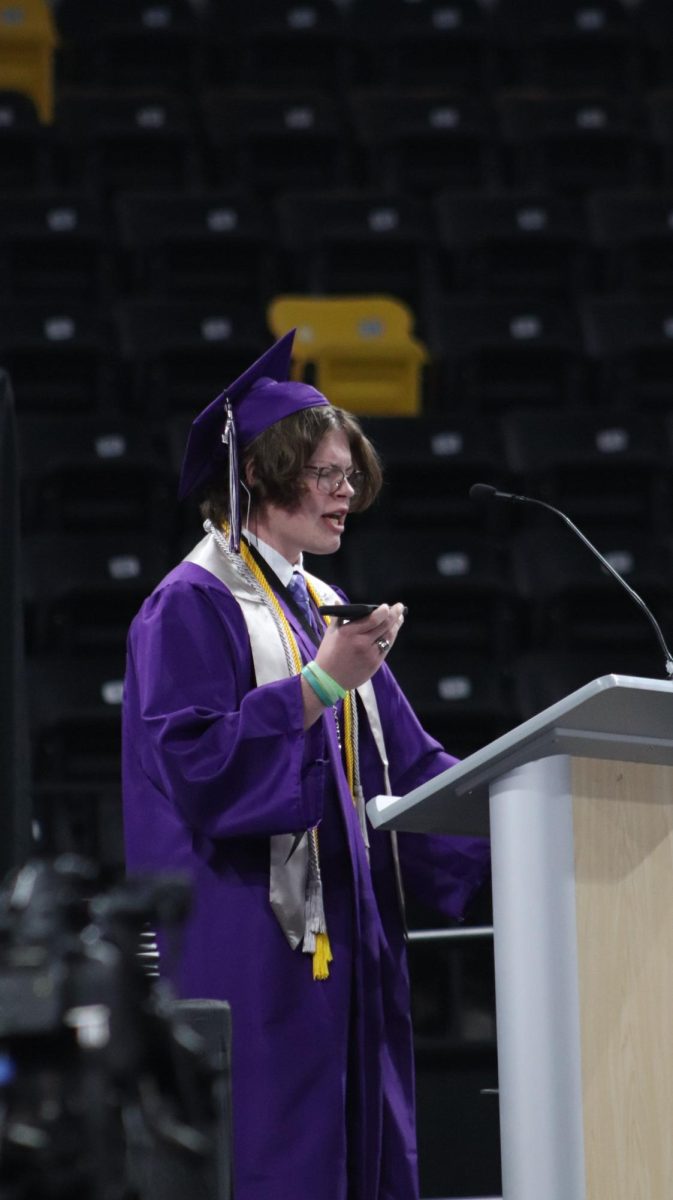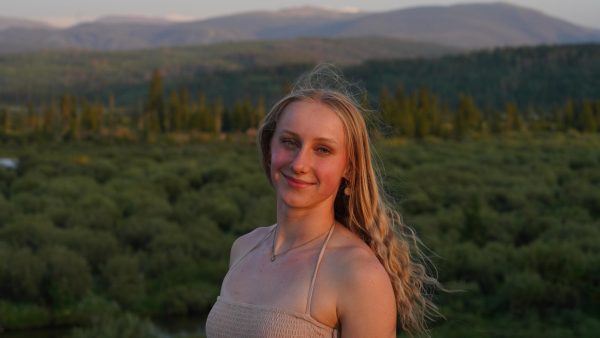Many families today come in different shapes and sizes. There are numerous types: nuclear, blended, single-parent, joint, same-sex parent, and so on. Special needs families hold a big place on that list.
I have experienced firsthand what it is like to have someone with special needs in the family. Though it is incredibly important to put a spotlight on those with disabilities, it is also insightful to learn about their families and how they are affected.
A small handful of students at Liberty fit into this category. Averie Bilskemper, 11, and I both have a sibling with special needs. Although not the same circumstances, we both have shared unique upbringings that have made us who we are today.
My brother Ben was diagnosed with Autism before I can remember. I do not know the exact day I realized he may be a little different than others; it was just something more normal for me. It was normal for aids and therapists to come over to my house everyday. It was normal for me to attend my brother’s Occupational or Speech Therapy appointments. It was normal because it was all I knew.
Averie is in a similar boat. Her older sister Anna has Rett syndrome. This means her physical function is lost, but her cognition remains fully functional. Like me, Averie does not specifically remember first realizing that her sister had special needs.
“I guess it’s always been kind of a reality, there was never a profound moment [of realization],” she said.
There are certain aspects of everyday life that are a little different when you have someone who needs a little more assistance in tasks. For my brother, we all have to help him get changed and ready. We have to buckle him in the car, walk him out to the bus, help him make food, etc. I don’t really know anyone else who has to stay home and “take care of” their older brother.
Averie mentions the extra things they have to implement as well: “If we want to go anywhere, it takes us four to five minutes to load Anna in the car. If we ever want to travel anywhere, we could fly but we haven’t, we always drive. If we are going anywhere in public as a family, we usually take the elevator. Going to restaurants is difficult, especially if it is really packed, because we have to find a space where we can fit her wheelchair and still have her be at the table with all of us.”
At home, sibling dynamics are a little different as well. I do not go into my brother’s room and start talking to him about my day or ask him about his. Nevertheless, I still talk to him despite the fact he cannot verbally respond. He uses a device to speak, but usually only about what he wants to eat or watch or how he is feeling. I do wish that I could talk to him more and hear what he has to say, but it is not in the cards for us. Nevertheless, we developed our own special relationship. I will read him books, try to make him laugh, help him figure out what to watch, and so on. He also gives the best hugs, so I know that if I ever need some cheering up, he will always be there for me.
Likewise, Averie and Anna also don’t have the typical sister to sister relationship you would think of. At home, Anna communicates differently than she does at school. Instead of using her Toby computer, her family communicates with her by using yes or no questions, with her making eye contact meaning yes and looking away meaning no. Therefore, it is more difficult to have that back-and-forth type of conversation.
“I don’t think we have the typical sister relationship, we have never bickered or anything like that and it’s just always been a different kind of sibling relationship than me and my brother for instance,” said Averie.
They still do activities together that are more “familial.” Averie explained, “Anna is a really good poker player so whenever we play she normally wins and we all play pretty often. Anna likes to do crafts and we will make different things together. She also really likes listening to audiobooks so we will go through them and find one she likes, then we’ll listen to it.“
As much as we love our siblings. It can be difficult at times. Sometimes my family has to cancel our plans because my brother is just not having a good day, so it can be hard to bring him with us at times. For example, we can’t really take him to the movies or it can be hard to go to a quiet restaurant.
Averie mentions it can be hard in certain situations too. She said, “Sometimes it’s difficult to find ways to include her- like if me and my brother are playing chess, and she also [wants to play], we have to figure out how to help her play chess.”
Overall, I was raised a bit differently. I grew up learning independence at a much younger age because I understood more assistance was needed from my parents for my brother. I also learned to be more helpful and patient. I always wanted to assist my brother’s aids in his therapies and would try to help him get dressed or pack his stuff. For most, at a certain age kids learn to do those things on their own and parents are not typically supposed to do that for the rest of their lives, but in my family with my brother, it is a necessity, so being that extra pair of hands for my parents is required.

“I think I’ve grown up pretty similar to everyone else in terms of attention given to each kid, but I think I have had the responsibilities of the middle child but also taking the responsibilities of the older child because Anna is the oldest, but she can’t do the chores and responsibilities,“ said Averie.
In addition, she feels her childhood was a little faster than other kids, “I definitely had to live with the reality that things can change quickly. There have been plenty of sudden hospital trips or emergency calls as a little kid. It’s kind of a responsibility to make sure that I’m calm and Joel [her brother] is calm when stuff like that happens so we can still be helpful and not get in the way. “
I am grateful for my brother and how I was raised differently because all together I am a better person since I see the world differently, with a lack of prejudice in my mind and with a likeness towards those who may be considered “different.”
“The best part about having Anna in our family is I have a different view on how a disabled person can affect a family. It has given me and my brother the opportunity to treat other disabled kids with respect and kindness because we understand that they are no different than anybody else,” Averie said.












